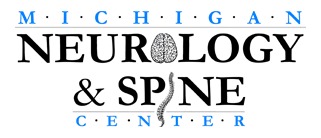At Michigan Neurology and Spine Center Physical Therapy our goal is to provide you with quality, one-on-one care that will improve your overall well-being. We work closely with Dr. Shuayto and the other providers in the practice to individualize your treatment plan. We pride ourselves in treating the “whole person” by addressing all physical and psychological components of pain and dysfunction. With 36 years of combined experience, our staff has the clinical experience to help you achieve your goals and return to your optimal level of function.


Why Choose Physical Therapy?
Physical therapists are movement experts and are trained to view your body as a kinetic chain, recognizing which area in the system is causing pain or dysfunction, and providing ways to correct that dysfunction. Through exercise, stretching and manual therapy, your therapist will work with you to maximize your functional ability no matter your current status. While our medical staff is working to relieve your pain with medication, injections or infusions, our therapists will work to resolve the postural malalignments, flexibility issues, and strength deficits that are contributing to your functional decline. This multi-faceted treatment plan is the most productive way to improved function and an overall healthier life.
Why choose Physical Therapy for Pain Management?
According to the Centers for Disease Control and Prevention (CDC), sales of prescription opioids have quadrupled in the United States, even though “there has not been an overall change in the amount of pain that Americans report.” The updated 2016 prescription guidelines recognize that opioids are appropriate in certain cases, including cancer treatment, palliative care, and end-of-life care, and also in certain acute care situations, if properly dosed. Physical therapy is a proven way for pain relief, as it treats to the “root” of the problem, instead of simply masking the pain
Patients should consider physical therapy if:
The risks of medications outweigh the rewards.
You want to do more than mask the pain.
Pain or function problems that are related to low back pain or arthritis
Opioids are prescribed for pain.
Pain that lasts 90 days or longer.
Our Services
While the majority of the conditions we treat involve neck or back pain, our physical therapy services go far beyond these conditions. We have the ability to successfully treat patients of all ages and abilities, so they can return to their optimal level of function. We want to help you regain your quality of life!

We provide specialized care and treatments for:
Neurological Conditions (Multiple Sclerosis, Parkinson’s, Stroke)
Neck and Back pain
Dizziness and Vertigo (Vestibular Rehabilitation)
Fall Prevention & Balance Training
Walking (Gait) Difficulties
Postural Re-education
Sciatica
Arthritis (Osteoarthritis, Rheumatoid Arthritis, Psoriatic Arthritis, Fibromyalgia, Gout)
Surgical Rehabilitation (Pre-Operative and Post-Operative)
Shoulder & Knee Pain
Foot & Ankle Pain
Headaches & Migraines
Car Accident & Work Injuries
Hand, Wrist and Elbow







